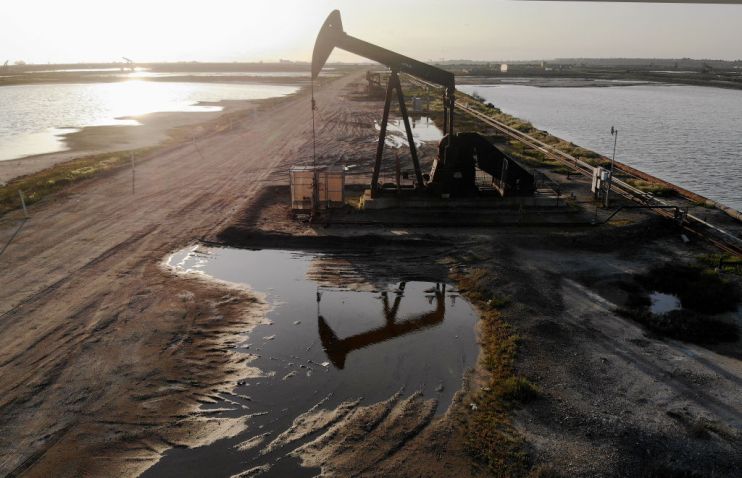UAE hints at supporting boost in oil supplies following Russia’s invasion of Ukraine

OPEC member United Arab Emirates (UAE) has seemingly called for more oil supplies to be pumped into the market yesterday, with raised fears of shortages following Russia’s invasion of Ukraine.
In a statement tweeted by the UAE Embassy in Washington, Ambassador Yousuf Al Otaiba said: “We favour production increases and will be encouraging OPEC to consider higher production levels.”
UAE energy minister, Suhail al-Mazrouei, later tempered the message, and said the country is committed to the OPEC+ agreement.
However, the initial suggestion of increasing supplies could reflect potential differences of opinion within the organisation – with the UAE diverging from Saudi Arabia’s sustained resistance from US calls to raise oil output.
It is unclear if OPEC has shifted its own position in line with UAE calls, but earlier this week, the group’s Secretary General Mohammed Barkindo raised concerns over supplies increasingly lagging behind demand as pandemic restrictions are removed across developed economies.
Just a week ago, the organisation and its allies (OPEC+) blamed surging prices on geopolitics rather recognising any lack of supply, and decided against increasing output beyond current targets of 400,000 barrels per day every month – a relatively modest target it has persistently missed.
Politics has also driven OPEC’s flagging performance, as Russia is the world’s top exporter of crude and fuel and countries are wary of being seen to take a side following its invasion of Ukraine.
The country ships around seven million barrels per day, representing seven per cent of global supplies – which the US has removed from its markets as part of ramped up sanctions targeting its energy sector.
Consequently, any decision from OPEC ramp up supplies will be a relief for US President Joe Biden.
For months, the White House has called on oil producers worldwide to increase production, as the government looks to reduce cost of living pressures ahead of crucial mid-term in November.
Energy Secretary Jennifer Granholm said: “In this moment of crisis we need more supply. Right now we need oil and gas production to rise to meet current demand.”
The US has also continued to hold talks with Iran over reviving the 2015 nuclear deal while officials have also met with the Venezuelan government.
Prices dip as Europe avoids imposing sanctions on Russia
The UAE and Saudi Arabia are among the few members of OPEC with spare capacity that could increase output to boost oil supplies.
Bob Yawger, director of energy futures at Mizuho, told Reuters: “That potential output hike is not nothing. They (UAE) can probably bring about 800,000 barrels to the market very quickly, even immediately, bringing us one-seventh of the way there in replacing Russian supply.”
Meanwhile, oil prices dropped yesterday afternoon by the highest amount in nearly two years.
Brent Crude slipped 13.2 per cent to $111.14 per barrel, its biggest one-day decline since April 2020.
While prices remain elevated with the US and UK imposing oil sanctions on Russia in already tight markets, Europe’s decision to not follow suit has eased fears from investors of imminent supply disruption.
The International Energy Agency (IEA) has also suggested crude reserves could be tapped further, following its decision last week to release 60m barrels of oil from strategic reserves.
“If there’s a need, if our governments decide so, we can bring more oil to the markets, as one part of the response,” said IEA chief Faith Birol.